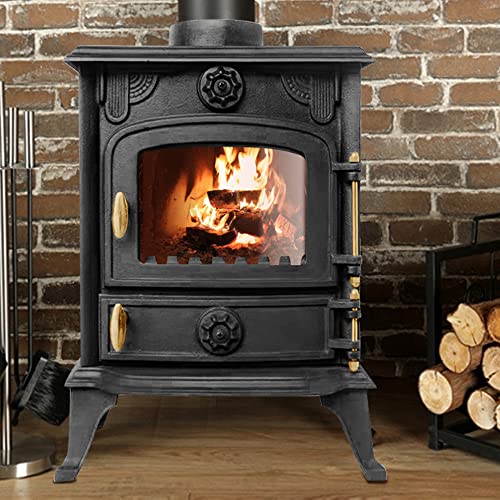How Defra Exempt Wood Burner Became The Hottest Trend In 2023
작성자 정보
- Eva 작성
- 작성일
본문
 Choosing a Defra Exempt Wood Burner
Choosing a Defra Exempt Wood BurnerSmoke Control Areas are the most commonly used classification for UK cities and towns. If you reside in a Smoke Control Zone and would like to install a stove, you will need a Defra approved stove. You can identify them through their approved logo from the Defra.
Defra exempt stoves are built to stop the fire from smouldering which reduces the amount of smoke that is produced. They also burn fuel better.
What is an Defra exempt stove?
A Defra Exempt Stove is a wood-burning heating appliance for domestic use that has passed the tests established by the Department for Environment, Food and Rural Affairs. The Defra Exempt Label is only used for stoves that have been independently tested, and that meet the strictest standards for emissions. Defra Exempt stoves are suitable to be used in Smoke Control Areas.
If you reside in a smoke control area, it is essential to have an DEFRA approved stove as you cannot legally burn wood (unless you are an authorized fuel) without one. If you install a non-DEFRA authorised stove in a smoke control zone, you'll be in violation of the Clean Air Act and could face prosecution.
 From the outside, there is no difference between an Defra approved stove and one that hasn't been awarded this status. There are however a few things that stove manufacturers do to make their appliances DEFRA Exempt. The DEFRA approved stoves come with burners that aren't made to starve the fires of oxygen. This can cause them to smoulder or produce excessive amounts smoke.
From the outside, there is no difference between an Defra approved stove and one that hasn't been awarded this status. There are however a few things that stove manufacturers do to make their appliances DEFRA Exempt. The DEFRA approved stoves come with burners that aren't made to starve the fires of oxygen. This can cause them to smoulder or produce excessive amounts smoke.To avoid this, manufacturers will adjust the top air vent of a stove that is Defra-approved. This will stop you from closing the vent all the way down, since this would cut off the supply of air to the fire. The adjustment is typically an incredibly small screw that is located on the front top of the stove, beneath the stove's base or on the back of the oven.
Stoves that are Defra Exempt also tend to be multifuel stoves and can therefore be used to burn different kinds of fuels in addition to wood. This is a great alternative for those who reside in areas that are designated as Smoke Control Areas and do not want to restrict themselves to using only authorised fuels. Some stoves that have Defra exemptions can be fitted with five" liner for wood burning (if the manufacturer doesn't demand the larger size). This is good news for those who plan on installing woodburning stoves in their homes but are worried about their local smoke regulations.
What are the benefits of a Defra-Approved Stove?
In addition to ensuring compliance with local regulations and providing a warm cosy fire, Defra approved stoves can provide many other advantages. For example, they tend to have higher energy efficiency than non-DEFRA certified stoves [Read the Full Post] and, consequently, reduce the amount of carbon emissions when used. This can result in significant savings on your heating bills. Additionally, Defra approved stoves are often easier to use than non-approved stoves, and can be fitted with simple controls.
When buying a multi-fuel or wood-burning stove, there are different aspects to take into consideration, including your requirements for heating as well as aesthetic preferences and long-term goals. When selecting a stove, it is important to consider these factors. A defra-exempt stove can be a great choice for homeowners who live in smoke-free areas. These stoves have been rigorously tested and are in compliance with strict environmental guidelines. They can aid in reducing the impact your stove will have on the environment.
Defra-approved stoves do not just meet the environmental standards, but also provide better combustion and spread of flame. This ensures that the fuel burns evenly, producing a more pleasant and consistent flame. In addition they are more durable than non-Defra-approved stoves, meaning that they will last longer and are able to endure higher temperatures.
Additionally, most Defra approved stoves work with a 5" chimney liner, which is ideal for homes located in smoke-free areas. However it is crucial to keep in mind that if you plan to use your stove with damp wood or any other wet fuel, this will still produce nuisance smoke and can possibly result in a prosecution by the local authority.
To get Defra approval, stove manufacturers are required to make modifications to the appliance to limit the amount of air it can be starved of during the burning process. Typically, the top air control will be modified to prevent it from closing completely. Shutting off the air supply to a stove too much could cause it to smolder instead of burning properly and result in a nuisance smoke.
What is the difference between a Defra approved stove and a non-Defra approved stove?
A stove that has been approved by the defra can let burning wood legally within a Smoke Control Area. However, a nondefra-exempt stove isn't. This is because stoves that have been Defra approved have passed tests to prove that they are able to effectively and safely burn wood in smoke-controlled areas without generating excessive levels of smoke. If you reside in a region that is smoke-free you can use the new stove without fear of penalties.
A Defra approved stove is also more efficient than other kinds of wood-burning stoves so it will generate more heat and emit less harmful emissions into the air. This makes them a good choice for homeowners who are seeking to save money while caring about the environment.
Stoves that are Defra approved will typically be advertised with the Defra Approved logo that is easily identifiable and is used by the stove industry. You can also find out whether a stove is Defra exempt by examining the specifications or the manufacturer's website.
When selecting a Defra approved stove, it is essential to think about the style that you require as there are many different options available. Some are more traditionally styled and look stunning in an old fireplace chamber or inglenook. Other stoves are more modern and would fit in a modern home.
It is also important to ensure that the stove you pick is Defra exempt by making sure that it appears on DEFRA's list authorised appliances or by ensuring that it's got the DEFRA exemption logo. Many manufacturers will advertise that their stoves are Defra exempt but they haven't been tested. It is much easier to market a Clean Burn stove than to test and go through the cost of becoming affordable DEFRA stoves exempt.
The stove will be exempt from Defra regulations, which means that the wood used to fuel it is sustainable and properly dried before burning. This reduces the amount of smoke produced, which is healthier for the environment. It also helps keep chimneys clean for longer.
What is the difference between a Defra Exempt Stove and the Non-Defra Exempt Stove?
When it comes to choosing the best stove for your home, there is many factors you must take into consideration, including design, heat output and fuel type. You might have noticed that many of the wood-burning and multi fuel stoves available on our site are described as being DEFRA exempt or DEFRA approved. This is jargon that, to the average homeowner, might seem like nothing more than a term used to sell products however, it can have very important implications for people who live in smoke-free areas.
To comply with the laws that prohibit the sale of wood within Smoke Control Areas Defra exempted wood burners have an internal mechanism that stops you from closing down the air supply valve completely. If you decrease the flow of air to the fire to a significant degree it can cause the wood to smolder, and produce excess smoke. This will be against the law. To prevent this from happening ensure that your wood is dried thoroughly before you put it in the stove.
You can also use the DEFRA exempt wood burner within a Smoke Control Area if you only burn approved fuels that are listed on the DEFRA website. This includes anthracites, semi-anthracites gas and low volatile steam coal. If you decide to install a non-DEFRA-approved stove in your home, Defra certified stoves and you burn wet wood or any other fuels that aren't on the DEFRA list that you can be fined up to PS1000.
Even if you don't reside in an area designated as a Smoke Control Area and you are not in a Smoke Control Area, an DEFRA exempt wood burner is still an excellent option since they are typically more environmentally and friendly to neighbours because they can be operated without generating nuisance smoke. They are also more efficient and will keep your chimney and flue cleaner for longer. It is important to know that all new stoves will have to comply with the stricter Ecodesign standards by 2022. These regulations define minimum efficiencies and NOX and OGV ceilings, and emission limits that are significantly more than the ones currently in place for DEFRA-exempt appliances.
관련자료
-
이전
-
다음
댓글 0
등록된 댓글이 없습니다.

